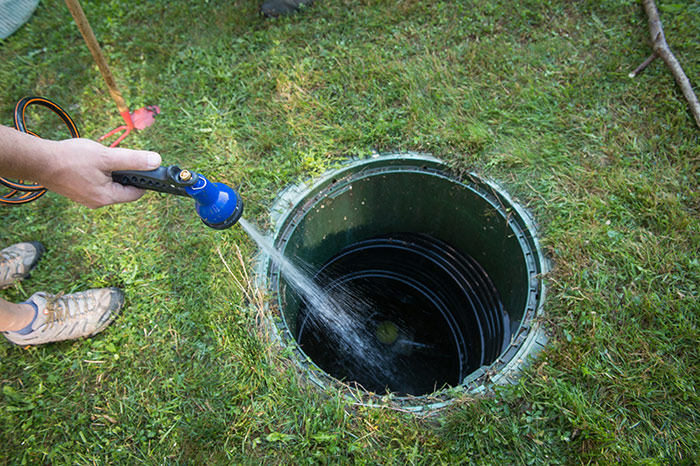
Even if they're small, even if the package says "flushable," some everyday items can cause messy and expensive problems for your plumbing and to sewer treatment facilities.
Products that might seem safe to flush down the toilet, such as personal care wipes, dental floss and paper towels, don't dissolve quickly – or at all – in water. If a scrap of undissolved material gets caught on a nick, bend or bump within a pipe, it can trigger a growth of buildup that could cause a sewer backup in your home or neighborhood.
Sewer agencies, environmentalists and consumer advocates are working with manufacturers to correct product labeling. In the meantime, please make sure to dispose of personal care products, cleaning supplies and other household waste properly: in the trash can, in the recycling bin or at your local household hazardous waste disposal site.
Cease the Grease
Fats, cooking oils and grease are not water-soluble. They coat household pipes and public sewer mains, causing nasty clogs. To dispose of household fats, oils and grease, carefully pour them into an empty metal can. Let it cool, then throw it in the trash.
A Healthy Environment Starts at Home - Household Hazardous Waste
Some household items shouldn't be flushed because they do break down in water. Dissolved chemicals can travel through the sewer system and pollute Boston Harbor and the marine environment.
Medications and supplements should not be flushed or disposed of down the drain. They should be wrapped and thrown in the trash, or brought to a local drug take-back site.
Unwanted solvents and other chemicals used around the home, like paint, cleaners and nail polish remover, should not be flushed down the toilet or poured down the drain. You should use them up or bring them to your local household hazardous waste disposal site.
